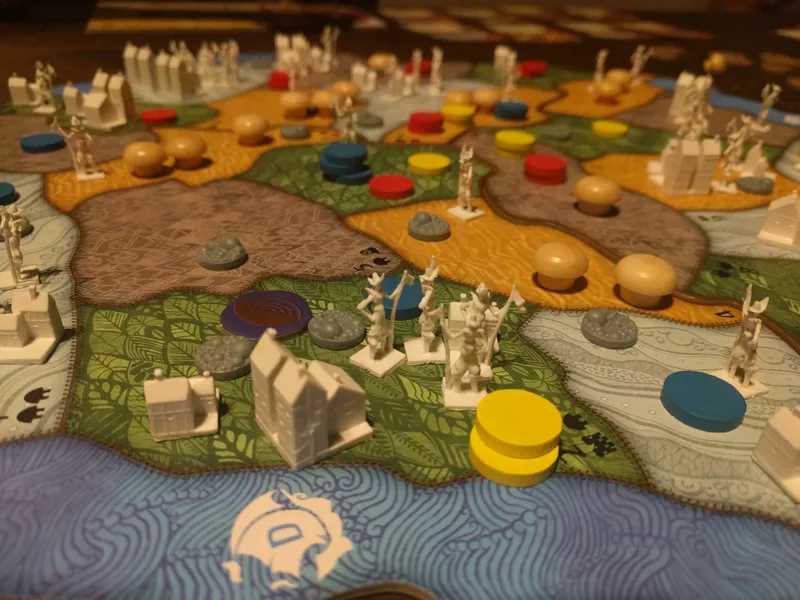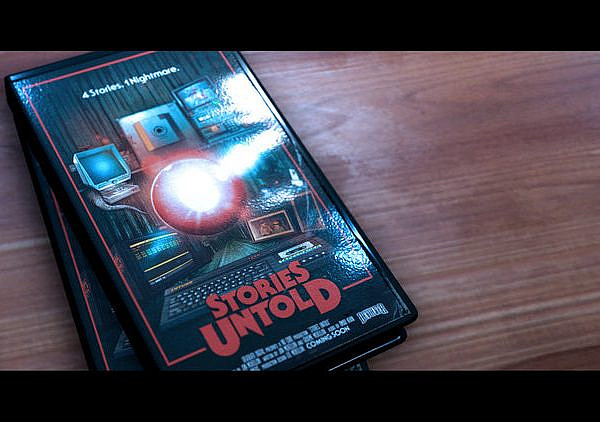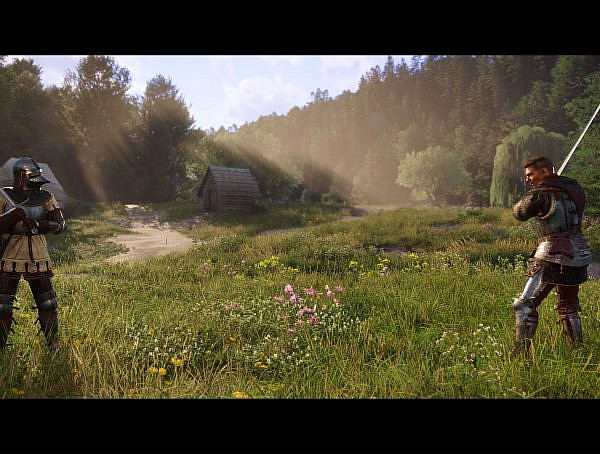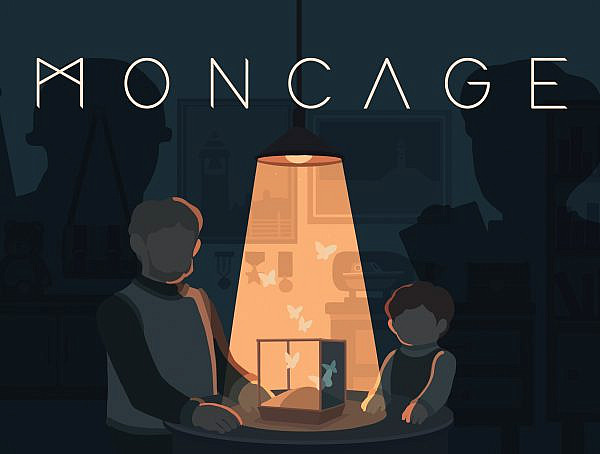Imperialism and colonisation are surprisingly common themes for games. Titles such as Civilisation and Settlers of Catan demand that their players occupy the role of imperialists seeking to expand and develop an empire. In those games the frontier is presented as either ‘virgin’ territory or as occupied by peoples that must be subjugated in a battle for supremacy. The boardgame Spirit Island subverts this tendency by asking its players to identify with the occupied rather than the occupier, and to become participants in anticolonial struggle. Its players assume the role of protective deities and work together to support the island and its indigenous peoples against an encroaching colonial menace.
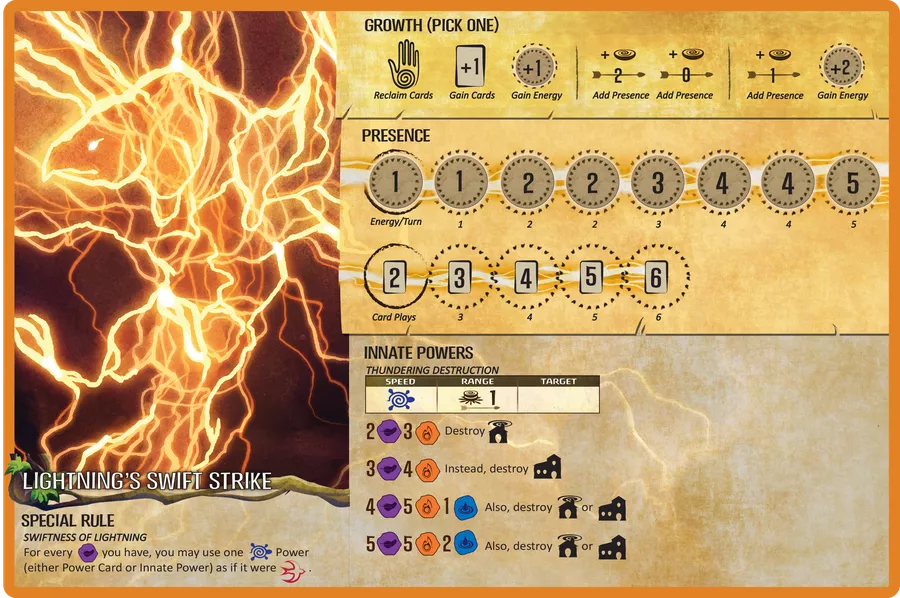
Each deity has its own game board which details the deity’s abilities and the player’s progress in unlocking them.
Like the strategy games to which it offers a ludic response, Spirit Island’s basic gameplay revolves around map control and the development of different kinds of capacity. Each turn, colonists ‘explore’ (adding more colonists), ‘build’ (constructing colonial towns and cities), and ‘ravage’ (attacking native villages and damaging the island) in terrains across the island determined by an ‘Invader’ deck that acts as an analogue enemy AI. The players’ goal during the game is to arrest the process of colonisation and eventually expel the colonial invaders. To do so, they must expand the presence of their chosen deities across the island, which grants them greater power to influence proceedings. Generally, this influence takes the form of either moving the island’s inhabitants into better strategic positions, blocking the colonists’ ability to expand and develop, or dealing damage to colonists, their towns, and cities. Each round, the colonists attack the island (presumably a metaphor for ecologically destructive extraction) and its indigenous population. A particular focus, therefore, is ensuring that both are defended. Protecting attacked villages is especially useful, as it allows their inhabitants to fight back against and often destroy their attackers.
If the island takes damage it suffers ‘blight’. Enough of this will eventually lead the island itself to become ‘blighted’, creating penalties for the players for the rest of the game. Conversely, destroying colonial towns and cities produces ‘fear’ among the colonists, and enough fear gives the players both temporary advantages and, eventually, even changes the game’s win conditions making it easier to achieve victory. For example, at a certain level of fear, the players no longer need to completely destroy all invader presence, but merely remove all colonial settlements. This meta-structure allows for the game to produce an interesting sense of narrative progression as previous successes or defeats change the rules of play.
Due to its somewhat complex rules and a structure that requires players to plan several rounds ahead, Spirit Island can be a somewhat intimidating game for beginners. As a co-op game, however, it is also relatively easy to support new players and to overcome this initial complexity. Furthermore, from my own experience, the novelty of the game’s anti-colonial themes are a draw for people not usually interested in more ‘involved’ forms of tabletop gaming.
Spirit Island illuminates relationships to the lived world that fall outside of the narrow perspective bestowed by the intellectual tradition of Enlightenment rationalism, with its strict divisions between subject and object, human and non-human. As we confront the devastating human and environmental costs that continue to be accrued by the world birthed by European empire, the game permits for reflection upon colonisation and its frequently uncritical reproduction within the gaming canon.
Designer: R. Eric Reuss
Publisher: Fabled Nexus
Released: 2017
Players: 1-4
Playing Time: 90-120 minutes
Ages: 13+
All images taken from boardgamegeek.com
More from Game Reviews
Stories Untold – An Experimental Psychological Horror Adventure
Stories Untold is a narrative-driven horror adventure game and a truly remarkable take on the genre. The four episode anthology …
Kingdom Come: Deliverance II – A Sequel Worthy of a Knight
KCD II delivers a living, breathing medieval roleplaying game to its players. #RPG, #kingdomcome, #openworld
Moncage Review: A Puzzle Game with Mind-Boggling Optical Illusions
Solving a huge #optical_illusion #puzzle in a tiny cube to discover a dark, #emotional story of trauma







